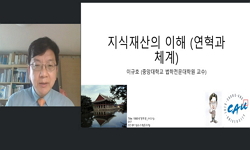Psychic distance is a subjective and comparative concept, which leads each individual to experience different levels of psychic distance towards identified constructs. Prior research suggests that psychic distance affects individual behaviour in vario...
http://chineseinput.net/에서 pinyin(병음)방식으로 중국어를 변환할 수 있습니다.
변환된 중국어를 복사하여 사용하시면 됩니다.
- 中文 을 입력하시려면 zhongwen을 입력하시고 space를누르시면됩니다.
- 北京 을 입력하시려면 beijing을 입력하시고 space를 누르시면 됩니다.

관광지에 대한 심리적 거리에 영향을미치는 요인에 관한 질적 연구 = Qualitative Research on Factors Affecting Tourists Psychic Distancetowards a Destination
한글로보기https://www.riss.kr/link?id=A105026513
-
저자
이희정 (Griffith University)
- 발행기관
- 학술지명
- 권호사항
-
발행연도
2012
-
작성언어
Korean
-
주제어
심리적 거리 ; 신뢰 ; 지식 ; 호의적 감정 ; 포커스 그룹 인터뷰 ; Psychic distance ; Trust ; Knowledge ; Positive feeling ; Focus group interview
-
등재정보
KCI등재
-
자료형태
학술저널
- 발행기관 URL
-
수록면
105-124(20쪽)
-
KCI 피인용횟수
18
- 제공처
- 소장기관
-
0
상세조회 -
0
다운로드
부가정보
다국어 초록 (Multilingual Abstract)
Psychic distance is a subjective and comparative concept, which leads each individual to experience different levels of psychic distance towards identified constructs. Prior research suggests that psychic distance affects individual behaviour in various ways. Despite its significance, however, very little is known about factors which influence psychic distance in tourism. By utilizing qualitative research means, this study investigated attributes that affect tourists’ psychic distance impacted in overseas holiday experiences. With this aim, focus group interviews were conducted with South Korean tourists. This study used content analyses to analyze the interview data. Three main categories were identified as a result; trust, positive feelings, and knowledge on a destination. If the culture of a host country is considered as attractive, trustable, tourists tend to have less levels of psychic distance between home and the host country. Moreover, if tourists have more knowledge on a host country, they tend to feel less psychic distance. The respective implications of the findings of this study, suggestions for future research and limitations are discussed within.
참고문헌 (Reference)
1 현용호, "친숙도에 따른 관광지 이미지, 방문만족, 재방문의도간의 구조적 관계에 관한 실증적 연구:안동 하회마을을 중심으로" 한국관광학회 29 (29): 147-167, 2005
2 권유홍, "영화의 감정반응이 관광목적지 이미지 형성에 미치는 영향-영화 ‘냉정과 열정사이’를 사례로-" 한국관광학회 30 (30): 47-70, 2006
3 이명식, "국가 이미지가 관광지 태도와 행동의도에 미치는 영향 연구" 한국관광학회 36 (36): 157-178, 2012
4 이인재, "관광이미지 형성에 관한 연구: 기대와 직접적 경험을 바탕으로 한 관광 이미지 형성과정을 중심으로" 한국관광학회 27 (27): 45-62, 2003
5 김진수, "관광목적지로서 강화도의 인지적·정서적 이미지와 지각된 위험이 추천의도·재방문의도에 미치는 영향" 한국관광학회 34 (34): 215-236, 2010
6 이정규, "관광객의 심리적 거리에 따른 관광목적지 이미지 영향 분석: 중국.일본관광객을 중심으로" 한국관광학회 28 (28): 153-174, 2004
7 Albrecht, T., "Understanding Communication Processes in Focus Groups, In Successful Focus Groups: Advancing the State of the Art" Sage 51-64, 1993
8 Khadaroo, J., "Transport Infrastructure and Tourism Development" 34 (34): 1021-1032, 2007
9 Ankomah, P. K., "Tourism Cognitive Distance : A Set of Research Propositions" 19 (19): 323-342, 1992
10 Crompton, J. L., "The influence of Cognitive Distance in Vacation Choice" 28 (28): 512-515, 2001
1 현용호, "친숙도에 따른 관광지 이미지, 방문만족, 재방문의도간의 구조적 관계에 관한 실증적 연구:안동 하회마을을 중심으로" 한국관광학회 29 (29): 147-167, 2005
2 권유홍, "영화의 감정반응이 관광목적지 이미지 형성에 미치는 영향-영화 ‘냉정과 열정사이’를 사례로-" 한국관광학회 30 (30): 47-70, 2006
3 이명식, "국가 이미지가 관광지 태도와 행동의도에 미치는 영향 연구" 한국관광학회 36 (36): 157-178, 2012
4 이인재, "관광이미지 형성에 관한 연구: 기대와 직접적 경험을 바탕으로 한 관광 이미지 형성과정을 중심으로" 한국관광학회 27 (27): 45-62, 2003
5 김진수, "관광목적지로서 강화도의 인지적·정서적 이미지와 지각된 위험이 추천의도·재방문의도에 미치는 영향" 한국관광학회 34 (34): 215-236, 2010
6 이정규, "관광객의 심리적 거리에 따른 관광목적지 이미지 영향 분석: 중국.일본관광객을 중심으로" 한국관광학회 28 (28): 153-174, 2004
7 Albrecht, T., "Understanding Communication Processes in Focus Groups, In Successful Focus Groups: Advancing the State of the Art" Sage 51-64, 1993
8 Khadaroo, J., "Transport Infrastructure and Tourism Development" 34 (34): 1021-1032, 2007
9 Ankomah, P. K., "Tourism Cognitive Distance : A Set of Research Propositions" 19 (19): 323-342, 1992
10 Crompton, J. L., "The influence of Cognitive Distance in Vacation Choice" 28 (28): 512-515, 2001
11 Echtner, C. M., "The Semiotic Paradigm : Implications for Tourism Research" 20 (20): 47-57, 1999
12 Frey, J. H., "The Group Interview in Social Research, In Successful Focus Groups: Advancing the State of the Art" Sage 20-34, 1993
13 Crotts, J. C., "The Effect of Cultural Distance on Overseas Travel Behaviours" 43 (43): 83-88, 2004
14 Kogut, B., "The Effect Of National Culture On The Choice Of Entry Mode" 19 : 411-432, 1988
15 McKercher, B., "Testing a Cultural Tourism Typology" 5 (5): 45-58, 2003
16 Neuman, W. L., "Social Research Methods" Pearson Education 2006
17 Tasci, A. D., "Social Distance: The Missing Link in the Loop of Movies, Destination Image, and Tourist Behaviour?" 47 (47): 494-507, 2009
18 Cook, R. L., "Redefining Vacation Distance in Consumer Minds" 22 (22): 31-34, 1983
19 Evans, J., "Psychic distance : The Construct and Measurers" 13 : 308-314, 2002
20 Evans, J., "Psychic Distance : Antecedents, Retail Strategy Implications, and Performance Outcomes" 16 (16): 32-63, 2008
21 Kerstetter, D., "Prior Knowledge, Credibility and Information Search" 31 (31): 961-985, 2004
22 Brewer, P. A., "Operationalizing Psychic Distance : A Revised Approach" 15 (15): 44-66, 2007
23 Baloglu, S., "Image Variations of Turkey by Familiarity Index : Informational and Experiential Dimensions" 22 (22): 127-133, 2001
24 Kerkvliet, J., "Heterogeneous Visitors and the Spatial Limits of the Travel Cost Model" 31 (31): 404-419, 1999
25 Yavas, U., "Foreign Travel Behaviour in a Growing Vacation Market : Implications for Tourism Markets" 21 (21): 57-69, 1987
26 Krueger, R. A., "Focus groups: A Practical Guide for Applied Research" Sage 2009
27 Lau, A. L., "Exploration versus Acquisition : A Comparison of First-Time and Repeat Visitors" 42 (42): 279-285, 2004
28 Ojala, A., "Entry in a Psychically Distant Market : Finnish Small and Medium-sized Software Firms in Japan" 26 (26): 135-144, 2008
29 Dow, D., "Developing a Multidimensional Instrument to Measure Psychic Distance Stimuli" 37 : 578-602, 2006
30 Hottola, P., "Culture Confusion : Intercultural Adaptation in Tourism" 31 (31): 447-466, 2004
31 Torbiorn, I., "Culture Barriers as a Social Psychological Construct: An Empirical Validation, In Crosscultural Adaptation: Current Approaches" Sage 168-190, 1988
32 Sousa, C. M. P., "Cultural Distance and Psychic Distance: Refinements in Conceptualization and Measurement" 24 (24): 467-488, 2008
33 Shenkar, O., "Cultural Distance Revisited : Towards a more Rigorous Conceptualization and Measurement of Cultural Differences" 32 (32): 519-535, 2001
34 Reisinger, Y., "Cultural Differences between Asian Tourist Markets and Australian Hosts : Part 2" 40 (40): 374-384, 2002
35 Swift, J. S., "Cultural Closeness as a Facet of Cultural Affinity : A Contribution to the Theory of Psychic Distance" 16 (16): 182-201, 1999
36 Enoch, Y., "Contents of Tour Packages : A Cross-Cultural Comparison" 23 (23): 599-616, 1996
37 Yauch, C. A., "Complementary Use of Qualitative and Quantitative Cultural Assessment Methods" 6 (6): 465-481, 2003
38 Walmsley, D. J., "Cognitive Distance : A Neglected Issue in Travel Behaviour" 31 (31): 24-29, 1992
39 Dann, G., "Anomie, ego-enhancement and tourism" 4 : 184-194, 1977
40 Ankomah, P. K., "A Study of Pleasure Travelrs' Cognitive Distance Assessments" 34 (34): 12-18, 1995
41 You, X., "A Cross-Cultural Comparison of Travel Push and Pull Factors" 1 (1): 1-26, 2000
동일학술지(권/호) 다른 논문
-
- 한국관광학회
- 유광민
- 2012
- KCI등재
-
축제 이해집단 간 의미구조관계 및 역할모형 구축 - 안동 국제탈춤페스티벌과 뉴질랜드 국제문화예술축제의 비교 -
- 한국관광학회
- 오정근
- 2012
- KCI등재
-
지역사회의 ‘삼차원 다(多)축제 평가 모형’ 개발을 위한탐색적 연구 - 강화도의 다(多)축제 통폐합 사례연구를 중심으로 -
- 한국관광학회
- 황수영
- 2012
- KCI등재
-
한국 국립공원의 자원 및 탐방객 관리 연구동향과 정책 - 학계와 실무분야의 교류 -
- 한국관광학회
- 이진형
- 2012
- KCI등재
분석정보
인용정보 인용지수 설명보기
학술지 이력
| 연월일 | 이력구분 | 이력상세 | 등재구분 |
|---|---|---|---|
| 2022 | 평가예정 | 계속평가 신청대상 (등재유지) | |
| 2017-01-01 | 평가 | 우수등재학술지 선정 (계속평가) | |
| 2013-01-01 | 평가 | 등재학술지 유지 (등재유지) |  |
| 2010-01-01 | 평가 | 등재학술지 유지 (등재유지) |  |
| 2008-01-01 | 평가 | 등재학술지 유지 (등재유지) |  |
| 2006-01-01 | 평가 | 등재학술지 유지 (등재유지) |  |
| 2001-01-01 | 평가 | 등재학술지 선정 (등재후보2차) |  |
| 1998-07-01 | 평가 | 등재후보학술지 선정 (신규평가) |  |
학술지 인용정보
| 기준연도 | WOS-KCI 통합IF(2년) | KCIF(2년) | KCIF(3년) |
|---|---|---|---|
| 2016 | 1.95 | 1.95 | 1.78 |
| KCIF(4년) | KCIF(5년) | 중심성지수(3년) | 즉시성지수 |
| 1.8 | 1.82 | 2.049 | 0.92 |




 스콜라
스콜라







